The opposition lawmaker who has led weeks of mass demonstrations in Armenia called Wednesday for the protests to take a break after a surprising move by the ruling party appeared to clear the way for him to become prime minister.
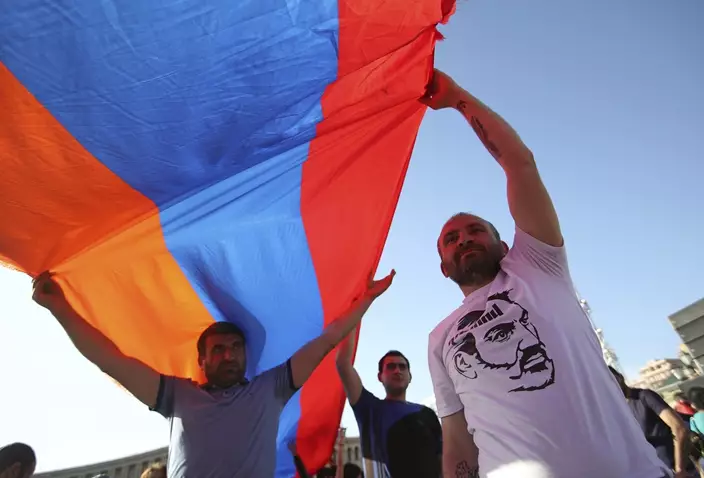
Supporters of opposition lawmaker Nikol Pashinian wave an Armenian flag during a demonstration in Republic Square in Yerevan on Wednesday, May 2, 2018. (AP Photo/Thanassis Stavrakis)
On a fast-moving day of turmoil that began with crowds blocking roads, railways and the airport in the capital of Yerevan, the head of the ruling Republican Party's faction in parliament said it would vote May 8 for any prime minister candidate nominated by a third of the body's 105 members.
That effectively promised the job to protest leader Nikol Pashinian, just one day after parliament rejected him.
Pashinian told a Wednesday evening rally that his Elk party and the two other opposition factions would nominate him on Thursday. Together, those parties hold 47 seats — well over the one-third mark set by the Republicans, who will not nominate a candidate of their own.
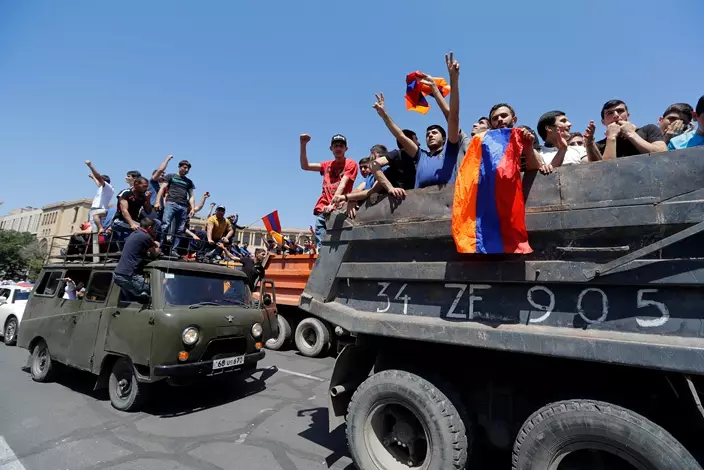
Supporters of opposition lawmaker Nikol Pashinian react standing on top of vehicles as they protest in Republic Square in Yerevan on Wednesday, May 2, 2018. (AP Photo/Sergei Grits)
"Armenia will have a prime minister on May 8," Republican faction leader Vagram Bagdasarian said.
In turn, Pashinian called for supporters not to protest on Thursday, saying: "Tomorrow, we will work in parliament."
Pashinian was the only candidate nominated in Tuesday's parliament vote for prime minister, but lost 45-55.
The protests began April 13, plunging Armenia into political turmoil and leading to the resignation of Prime Minister Serzh Sargsyan just days after his appointment.
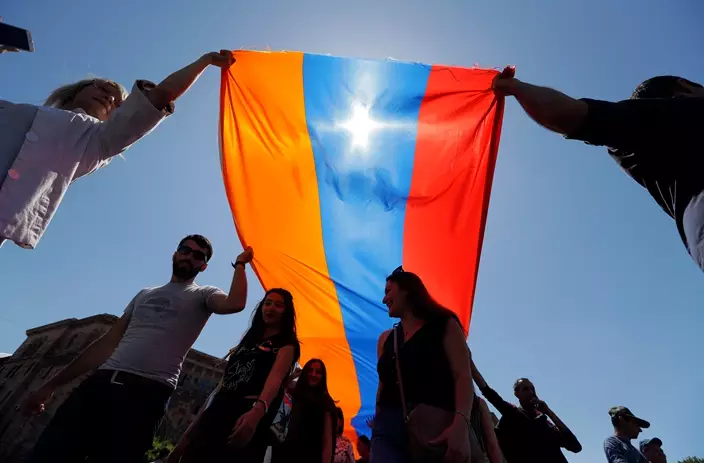
Supporters of opposition lawmaker Nikol Pashinian carry a large Armenian flag as they protest in Republic Square in Yerevan on Wednesday, May 2, 2018. (AP Photo/Sergei Grits)
Sargsyan had led the country as president for 10 years, but stepped down because of term limits. Soon thereafter, parliament named him prime minister under a new government structure that gave the post greater powers. Protesters said the move effectively allowed him to remain as leader indefinitely.
After he lost the vote in parliament, Pashinian called for Wednesday's nationwide strike.
Earlier in the day, Pashinian warned the government not to bring troops to the capital to quell the demonstrations.
"Police and security services are neutral, and if they (government) will bring for example the army to Yerevan, all soldiers will come to us and they will join us. And there is no way for any solution by force," he said in an interview with The Associated Press.
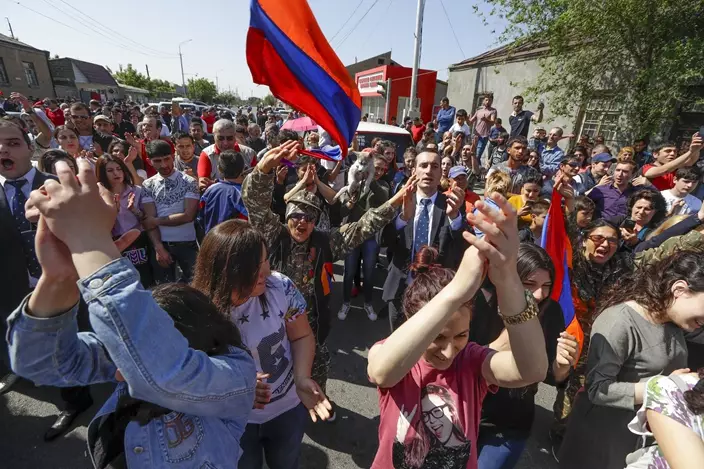
Supporters of the opposition lawmaker Nikol Pashinian dance and sing as they block a road to the airport just outside Yerevan, Armenia, Wednesday, May 2, 2018. (AP Photo/Sergei Grits)
Acts of civil disobedience took place elsewhere in the small former Soviet republic. Protesters occupied the city hall in Gyumri, Armenia's second-largest city, and some significant highways in the countryside became impassable. The highways are key conduits to Iran and Georgia; Armenia's two other borders, with Azerbaijan and Turkey, are closed.
The State Revenue Committee warned that the blockages could "present a serious blow to Armenia's food security" and urged protesters not to interfere with food deliveries.
The national railway said it was suspending passenger service for Yerevan's suburban area because of protesters blocking the tracks.
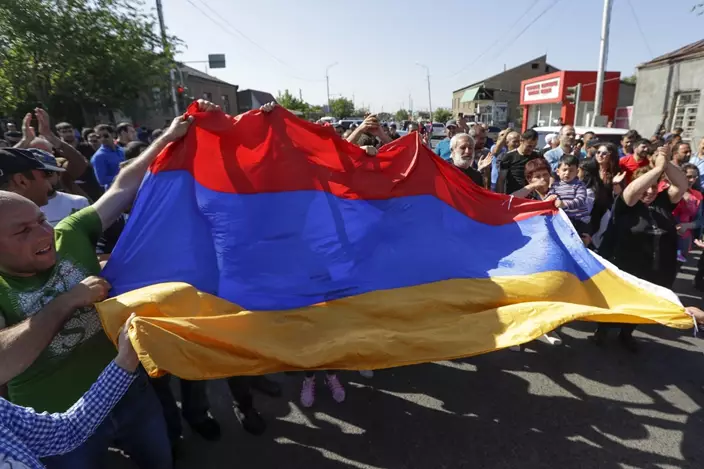
Supporters of the opposition lawmaker Nikol Pashinian vawe an Armenian national flag as they block a road to the airport just outside Yerevan, Armenia, Wednesday, May 2, 2018. (AP Photo/Sergei Grits)
About 300 demonstrators used cars to block the road to Armenia's main international airport, forcing many travelers to make long walks with their luggage to catch flights.
In the AP interview, Pashinian said that by rejecting him as prime minister, the ruling party had dealt itself a fatal blow.
"I think that the Republican Party yesterday have made a suicide pact, as a party, as a whole," he said.


